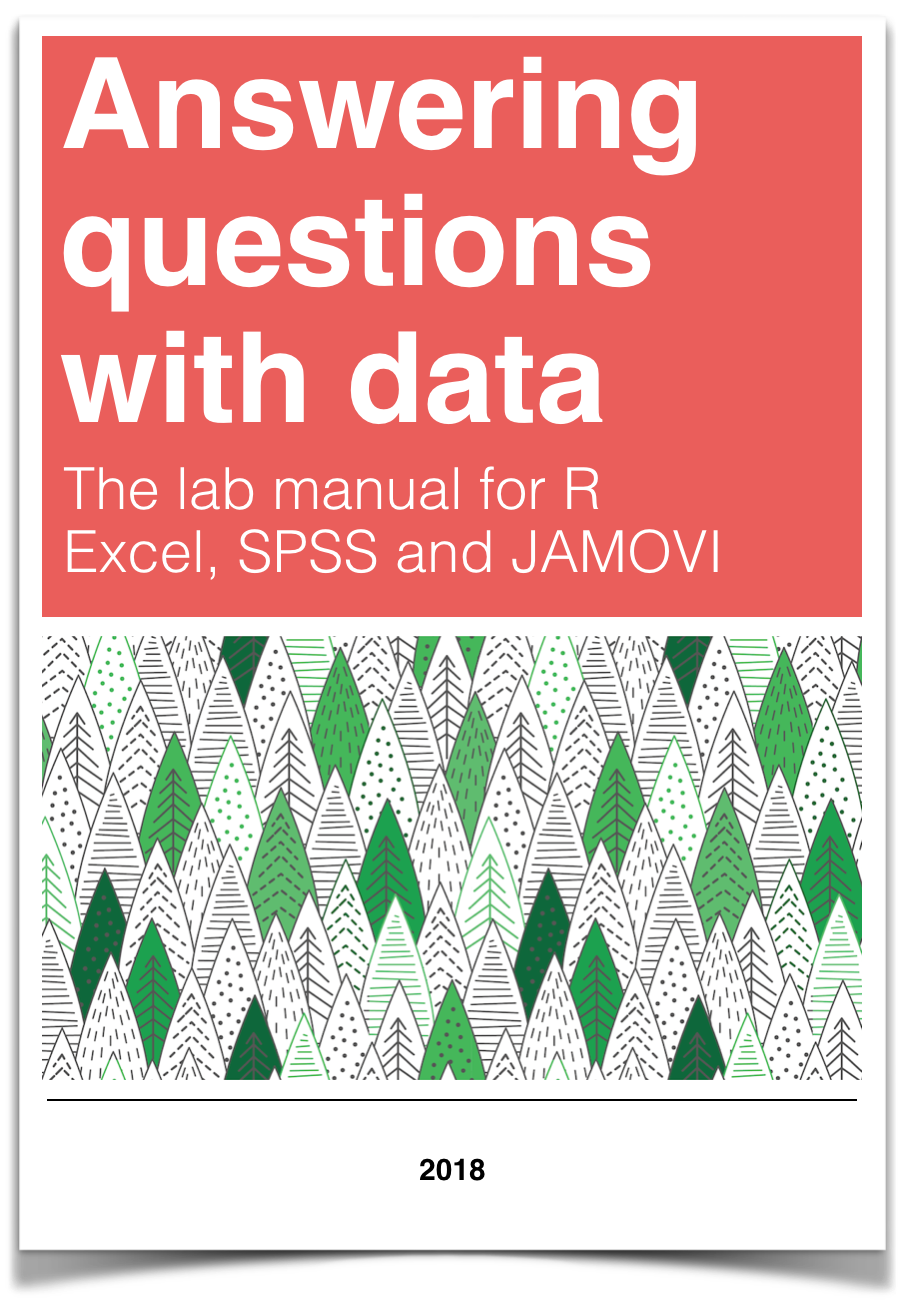
Answering questions with data: Lab Manual
2018: Last Compiled 2019-04-06
Preface
First Draft (version 0.9 = August 15th, 2018) Last Compiled: 2019-04-06
This is the companion lab to our free introductory statistics for undergraduates in psychology textbook, Answering questions with data.
This lab manual involves step by-step tutorials to solve data-analysis problems in software. We use open-data sets that are usually paired with a primary research article.
Each lab has a separate guide for solving the problems in R & R-studio, Excel, SPSS, and JAMOVI.
The manual is a free and open resource. See below for more information about copying, making change, or contributing to the lab manual.
0.1 Important notes
This lab manual is released under a creative commons licence CC BY-SA 4.0. Click the link to read more about the license, or read more below in the license section.
This lab manual is part of a larger OER course package for teaching undergraduate statistics in Psychology. Team members include, Matthew Crump, Alla Chavarga, Anjali Krishnan, Jeffrey Suzuki, and Stephen Volz. As this OER comes together, we will be providing a course website, written in R Markdown, as well as slide decks for the lectures (these will be more fully available by the end of fall 2018). As a result, this textbook, the lab manual, the course website, and the slide decks will all be free, under a creative commons license. The source code for all material is contained in the GitHub repositories for each, and they are a written in R-markdown, so they are relatively easy to copy and edit. Have Fun!
0.1.1 Attributions
This lab manual was authored by Matt Crump (R exercises), Anjali Krishnan (JAMOVI exercises), Stephen Volz (EXCEL exercises), and Alla Chavarga (SPSS exercises).
Labs 6, 7, and 8 were adapted and expanded from Open Stats Labs. Thanks to Open Stats Labs (Dr. Kevin P. McIntyre) for their fantastic work.
0.1.2 CC BY-SA 4.0 license
This license means that you are free to:
- Share: copy and redistribute the material in any medium or format
- Adapt: remix, transform, and build upon the material for any purpose, even commercially.
The licensor cannot revoke these freedoms as long as you follow the license terms.
Under the following terms:
- Attribution: You must give appropriate credit, provide a link to the license, and indicate if changes were made. You may do so in any reasonable manner, but not in any way that suggests the licensor endorses you or your use.
- ShareAlike: If you remix, transform, or build upon the material, you must distribute your contributions under the same license as the original.
- No additional restrictions: You may not apply legal terms or technological measures that legally restrict others from doing anything the license permits.
0.1.3 Copying the lab manual
This lab manual was written in R-Studio, using R Markdown, and compiled into a web-book format using the bookdown package.
All of the source code for compiling the book is available in the GitHub repository for this book:
https://github.com/CrumpLab/statisticsLab
In principle, anybody could fork or otherwise download this repository. Load the Rproj file in R-studio, and then compile the entire book. Then, the individual .rmd files for each chapter could be edited for content and style to better suit your needs.
If you want to contribute to this version of the lab manual, you could make pull requests on GitHub, or discuss issues and request on the issues tab.
0.1.4 Acknowledgments
Thanks to the librarians at Brooklyn College of CUNY, especially Miriam Deutch, and Emily Fairey, for their support throughout the process. Thanks to CUNY for supporting OER development, and for the grant we received to develop this work.